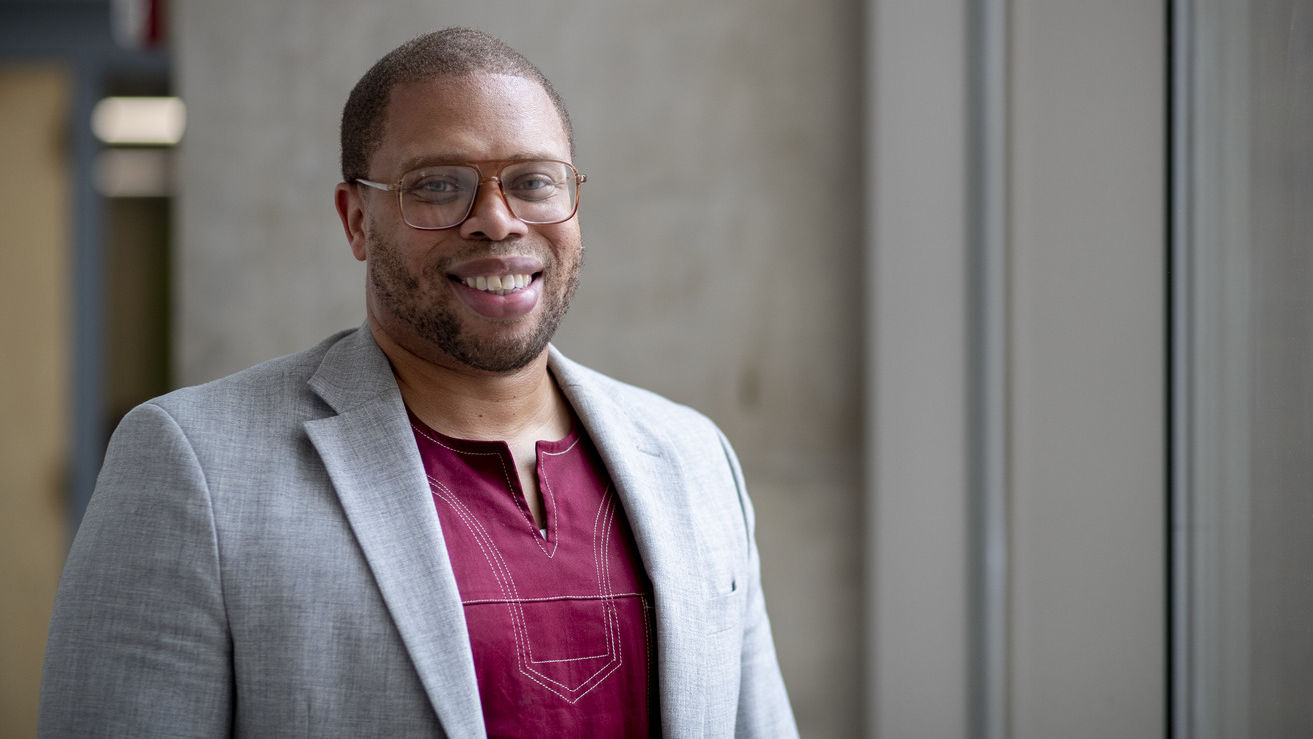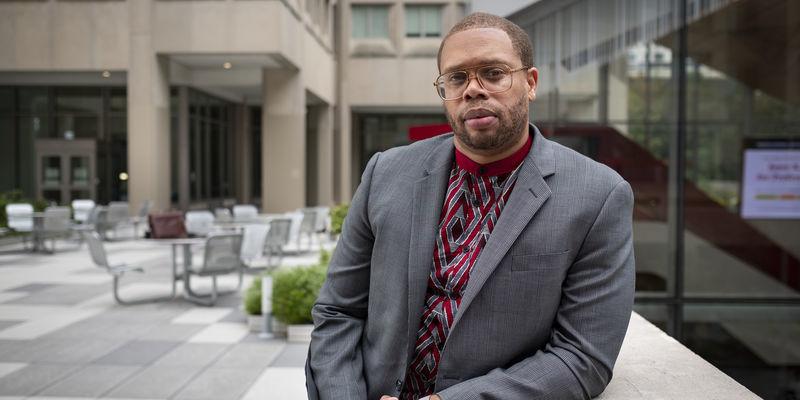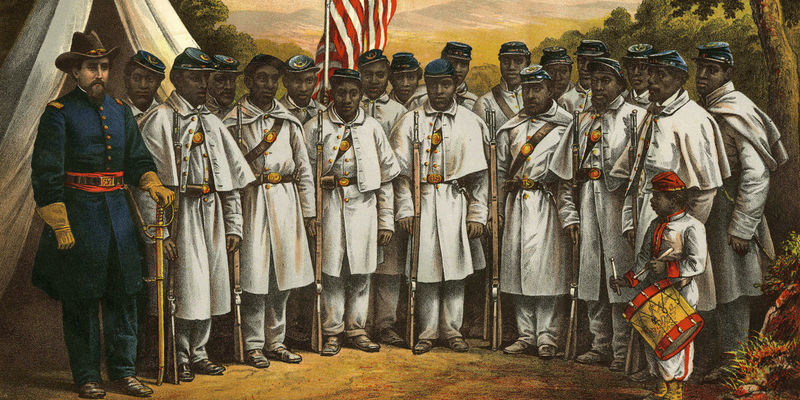Marvel’s ‘Black Panther: Wakanda Forever’ promises to be more powerful than its predecessor. Here’s why.
Temple University’s director of its Center for Anti-racism discusses why Black Panther: Wakanda Forever could have an even bigger cultural impact than its predecessor and the hidden message in the movie title. He also answers the burning question on everyone’s minds: will Shuri be the next Black Panther?

In 2018, Marvel Studios released Black Panther, the first major superhero movie with a Black hero, director and a majority Black cast. Its place as a cultural hallmark has been well-documented as the film did not shy away from complicated themes regarding race, identity, and what it means to be Black in both America and Africa. It was also a critical financial success, still standing as the 14th highest-grossing film of all time.
Black Panther’s impact and legacy arguably became even more significant in August 2020 when the film’s star, Chadwick Boseman, abruptly passed away. When the actor died, it felt as if almost all of America was grieving, not just for the loss of a beloved character but also what it would mean for the barrier-breaking Black Panther storyline.
Timothy Welbeck is an assistant professor of instruction in the Department of Africology and African American Studies and director of the Center for Anti-racism at Temple University. His scholarly work focuses on contemporary issues of racial identity in America, African and African American cultural transmissions, and the intersection of racial classifications and the law.
Following the release of Black Panther in 2018, he authored a review of the film for WHYY, Philadelphia’s NPR affiliate, titled “The magnificence of ‘Black Panther’ is in its re-imagining of Africa.”
Despite Boseman’s passing, the film’s sequel, Black Panther: Wakanda Forever, is set to hit theaters Nov. 11. The film’s plot includes grief following the death of Boseman’s character, T’Challa, making it a true fiction-meets-reality affair.
Temple Now caught up with Welbeck to discuss the highly anticipated upcoming film and offer some context as to why this film might end up being even more culturally relevant than its ever-important predecessor.
Temple Now: Let’s first talk about the cultural significance of Black Panther heading into this Wakanda Forever sequel. We have seen Hollywood actors pass away before, but Chadwick Boseman’s death seemed especially poignant. Why do you think that is?
Timothy Welbeck: We live in a world that is, at times, difficult for Black people to navigate. So it was a beautiful thing to see a Black superhero, an unconquered African kingdom, and fully actualized Black female characters in the film. All of these elements coming together was special.
Pair that with who Boseman was. We have heard from those who knew him personally how he was just an incredible human being. As an actor, he was so selective in his choices of who he portrayed. He was really a larger-than-life character. He played James Brown. He played Thurgood Marshall. He played Jackie Robinson. He played T’Challa. These are all superheroes in their own right, so I think that is part of what makes his death so hard. It was a bit like hearing the news that Christopher Reeves was paralyzed. We all thought, what do you mean? Superman can’t walk? But he used to fly! But in Boseman’s case it’s so much more pronounced because it just seems to communicate the inescapable specter of death, and that is a difficult thing to navigate particularly for the Black community right now. This is especially true because there’s so many people who are still grieving the losses of COVID-19.
TN: When Boseman passed, Marvel quickly made the decision not to recast him. While it is uncommon for them to recast characters, it’s not unprecedented, either. Why do you think they chose not to recast T’Challa's character?
TW: What is so interesting is that with Marvel’s concept of the multiverse, they could have easily recast T'Challa for Wakanda Forever. Instead, this film is going to deal with the loss of this great king, which mirrors the real-life loss of Boseman. Black art often has to reconcile with real life in ways that other art doesn’t always have to, and so to just have to deal with the reality of death in this way is something that is very compelling. I remember reading an interview with Lupita Nyong’o, and one of the things she said was that she and her castmates were elated that T'Challa was not recast because it allows this film to deal with his death. They were not over it yet. The film deals with him not being here anymore in a way that they felt was beautiful and powerful, and they got to celebrate and acknowledge his presence. That makes his absence now mean even more.
TN: We mentioned how the first Black Panther film was very much a cultural hallmark of sorts, especially with the Black community. What type of impact do you expect Wakanda Forever to have?
TW: This film has the potential to be more powerful than the first. It is going to capture not only the power of grief, but the power of the resolve to move forward in the face of loss. The first film was an exercise in optimism, hope, reality and imagination. Wakanda Forever is an analysis of what you do when your hopes are dashed. How do you pick yourself up from heartbreak? How do you piece yourself back together? I think we’ll see a collection of people coming together to answer these questions together.
And these kinds of messages will resonate loudly. Look back at the infamous summer of 2020. First, in the spring, there was the killing of Breonna Taylor and then as summer approached, there was the murder of George Floyd. There was just so much palpable grief, this feeling of “not again.” Then, we have this historic pandemic come and disproportionately impact the Black community. And we also have an epidemic of gun violence affecting our country. People at a very personal level have had a lot to deal with, and there is a lot of grief that comes with that. This film has the capacity to echo their reality and provide hope for what comes after loss.
TN: One of the reasons that the film did not need to recast a new T’Challa is because its supporting cast is so strong. Say more about the female characters in this film and their importance to the storyline, especially now with the passing of King T’Challa.
TW: One of the most special aspects of the first Black Panther film is the presence of fully actualized female characters. They were not just props to celebrate the story or give the male character some form of motivation. They were fully invested people involved in the arc of the story. Almost every advancement in the narrative is tied into these powerful female characters. For example, Nakia inspires T’Challa to understand that he could do so much more for the world than hiding in his kingdom with his resources.
That’s also the beauty of Wakanda and why the film resonated with so many people and why the sequel will likely resonate with them, too. It’s not some type of tyrannical dictatorship that is led by one person who rules with an iron fist. This is a communal setting in which everyone participates. Everyone has a vital role to play. And, so to that point, if you have to take one person out, another can arise, and that is what we will see in this sequel when someone new takes on the mantle of Black Panther.
TN: What are your thoughts on the title of this sequel? Do you think there is a hidden meaning to the title Wakanda Forever?
TW: I think that the meaning of Wakanda Forever is a promise. In it, is the idea that “we are a community, we have existed, and we will continue to exist.” Wakanda today, Wakanda yesterday, Wakanda tomorrow. It captures the whole arc of the journey of Africans in America from the period of enslavement to the fight for equality. And so the idea that the people of Wakanda will march on in spite of grief, in spite of loss, and come what may, the people of Wakanda will continue to move forward and that setbacks like this will not be enough to defeat the will of the people. And that’s what gives this film the potential to be better than the first.
TN: The burning question on everyone’s minds is if Shuri will be the next Black Panther. Based on your understanding of the original Black Panther comics and the role this film is playing in our society right now, who is going to be the next Black Panther in Wakanda Forever?
TW: The most obvious answer is that Shuri will be the next Black Panther in part because she took on the mantle of the Black Panther in the comics at times when T’Challa was unavailable. Notwithstanding, the Marvel Cinematic Universe has a history of surprising us, so I would not be shocked if they leaned in a less obvious direction.

